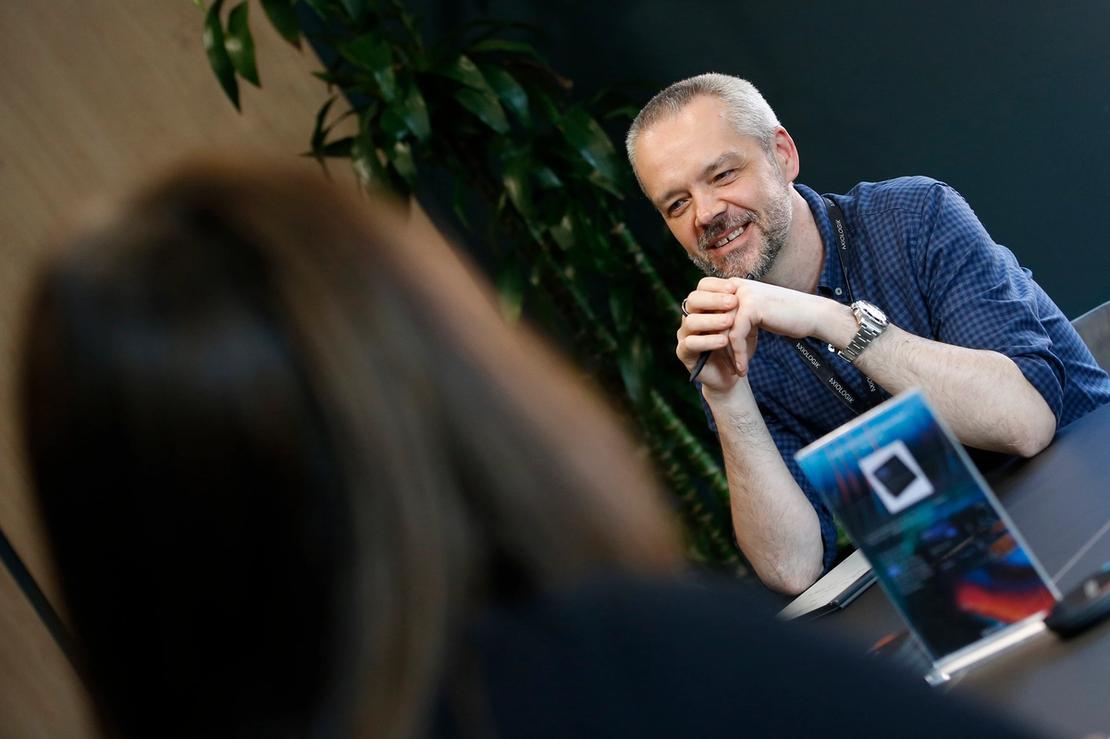
Many organisations today recognise that the way they work now isn’t right for today’s digitally disrupted world – either they are being outflanked by digital natives with hyper-connected experiences unencumbered by legacy data siloes and services or they simply can’t make their internal processes and systems cycle fast enough to keep pace.
In a survey of 1400 businesses by Bain & Company, 70% indicated they were already experiencing significant digital disruption in their industries and 85% believed disruption would maintain its blistering pace or even accelerate for the next 5 years. This is serious stuff – there’s no growing old gracefully, it’s adapt or die.
Many of the so-called ‘advancements’ in digital transformationin recent history are focused on driving one of these two outcomes – techniques to make customer-facing services better or mechanisms to deliver in different, hopefully better, ways. These range from deterministic approaches like SAFe, which promise a ‘do this and you’ll succeed’ recipe, towards more contextualised ‘experience-based’ approaches, which involve deeply listening to those that interact with a process and then prioritising improvements based on their needs. For the avoidance of doubt, we advocate the latter.
Despite this and all the millions of pounds poured into customer experience and agile transformation, many organisations are still struggling to be notably different. According to a Boston Consulting Group survey from 2022, nearly 70% of agile transformations fail. Similarly, only 22% of customer experience transformations result in services that meet customer expectations.
So what’s the problem here?
There seems to be a new type of ‘experience’ popping up every day.
Customer experience transformation initiatives aim to re-engineer how users interact with services to better align to their needs and thereby deliver better results. Other ‘experience’ initiatives like Developer Experience and the new darling of the ITSM scene, Service Experience, aim to achieve similar goals – i.e. changing how something works to better meet the needs of those that interact with it.
Most of these initiatives will deliver some good improvements but won’t realise their full potential. In their State of the Connected Customer survey1, Salesforce indicate that 76% of customers expect consistent interactions across departments, yet 54% say it generally feels like sales, service, and marketing teams don’t share information. If ‘Customer Experience’ is the oldest and most heavily trodden of the different ‘experience’ paths, then why are we struggling to actually make it work?
Because conceptualising and making disruptive changes across legacy structures, hierarchies, fiefdoms and incentive structures is hard.
Peter Drucker famously stated that culture eats strategy for breakfast. If this is the case, then inertia risks eating them both for lunch.
Organisations as complex eco-systems
Two things matter for organisations – the services they provide to their customers and how they go about creating and iterating those services. At the heart of each of these aspects is a complex eco-system of people, processes, systems, politics and history, where every component exerts a gravitational pull towards the status quo, an entropic reversion to the norm.
Transforming service delivery and value creation requires not only a differentiating vision but also an understanding of how the bits fit together, coupled with a cultural imperative strong enough to overcome inertia and move the right bits in the right order.
Introducing The Experience-Led Organisation
The winners in this digital arms race will be those that are prepared to go further than their competitors in re-imagining the status quo and establishing a continuously accelerating change momentum. To achieve this, organisations need to undergo a paradigm shift of continuously optimising the organisation for the benefit of the work, rather than fitting the work to the organisation. We call this the Experience-Led Organisation.
The Experience-Led Organisation is much more than just a combination of disjointed ‘experience’ initiatives – it’s a radical, ongoing, adaptive re-engineering from top-to-bottom & front-to-back across all services and functions to optimise around value delivery and value creation. Because everything is interconnected, every team and every function understands who it serves and where it fits in the bigger picture. Nothing exists ‘by right’, it only exists in a connected eco-system where every entity provides services to others and where the friction injected by those services impacts on the success of the whole. It requires everyone to take a pervasive, big picture, ‘systems thinking’ view where everyone collaborates beyond the gravitational pull of legacy structures to optimise their contribution to the whole by optimising their services around their consumers.
Above all this is culture, leadership and environment creation – bold strategic visions, sensing & responding, enrolment, continuous improvement, acceleration, the ability to make mistakes and, above all, relentless focus on user-centricity and the work, not the structure.
And whilst this might sound deliberately challenging and abstract, then think about this – how did the digital disruptors in your industry establish their disruptive position? Because they were prepared to think and act differently. Yes, they might not be encumbered by legacy structures, processes, systems and mindsets, but that’s your problem. No-one gave Blockbuster a pass, right?
If you found this article stimulating and want practical tips on pragmatic first steps on this journey, then look out for our forthcoming whitepaper and register your interest <<HERE>>
 Leadership of Critical Change
Leadership of Critical Change Designing Exceptional Services
Designing Exceptional Services Digital Organisation Optimisation
Digital Organisation Optimisation Driving Engineering Excellence
Driving Engineering Excellence Service Ops Modernisation
Service Ops Modernisation Unlocking the Cloud
Unlocking the Cloud

